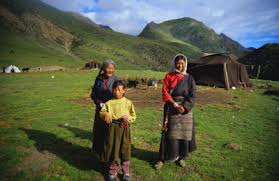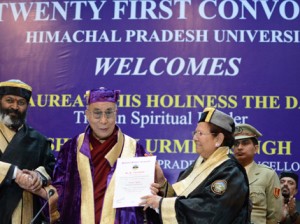For Tibetans who live every day under Chinese oppression, last year’s change of leadership in the Communist Party brought about optimism – would the new President, Xi Jinping, ease up on the government’s systematic assault on Tibetan identity?
Despite that optimism, little has changed in the lives of Tibetans living in China one year later. Security forces continue to crack down on any public gatherings of Tibetans, often imprisoning those that organised them. Nomadic Tibetans whose families have been living off the vast plateau for centuries are being forced off their ancestral lands and into urban settlements so that government-backed industries can access the vast reserves of copper, gold and other minerals. Tibetan monasteries – once beacons of Tibetan culture and history – have been forced at gunpoint to fly the Chinese flag and denounce the Dalai Lama. Monks and laypeople refusing to comply with the Chinese ultimatums continue to be arrested and thrown into prisons or “political re-education camps” for months or years at a time. Despondent but aware of their spiritual leader’s teachings of non-violence, some Tibetans turn the violence on themselves – self-immolating in public acts of protest.
After more than five decades of oppression and exile, Tibetans can’t be blamed for looking for a light at the end of the tunnel. Xi Jinping’s father, Xi Zhongxun, had close relations with the Dalai Lama and before his death in 2002, the elder Xi was a relative liberal among Chinese politicians, speaking out for the rights of ethnic minorities like Tibetans and Uighurs and opposing the 1989 military crackdown on student protesters in Tiananman Square.
But thus far the son seems to lack the father’s open-mindedness, as reports continue to come in of human rights violations inside Tibet.
Tibetans publicly gathering to celebrate religious holidays or protest against government action are routinely dispersed by security forces and often arrested and beaten. At least 14 Tibetans were injured, some critically, after police fired live ammunition at a group of hundreds that had gathered to celebrate the Dalai Lama’s birthday in Tawu County in Kham province in July 2013.
More than 12 Tibetan writers, artists and musicians were arrested in 2013 for “subversive” activities, which included singing protest songs or distributing information about Tibetan self-immolations or the Dalai Lama, according to a tally by TCHRD. China continues to ramp up its war on information in Tibet, threatening Tibetans with fines and “other consequences” for possessing satellite television that could bring in information that counters government-run propaganda. Sensitive terms relating to Tibet or the Dalai Lama are routinely erased from social media sites.
Tibetans have difficulty travelling within China and it is next to impossible for them to leave the country, according to TCHRD. In 2012 the government forced Tibetans to give up their current passports in exchange for new “electronic” ones, but the government has yet to reissue the new passports, essentially making Tibetans prisoners in their own country. Many Tibet watchers see this as an attempt to limit Tibetans’ ability to travel to Dharamashala, India to visit the Dalai Lama.
Nomadic Tibetans, whose families have been raising livestock on the plateau for centuries, are increasingly being forced into urban housing projects, drastically changing their lifestyles. Chinese authorities plan to relocate more than 900,000 people by the end of 2014, according to Phayul.com.
The relocations have come hand in hand with increased mining operations in Tibet that environmentalists fear will pollute the headwaters of major Asian river systems like the Yangtze, Yellow and Mekong, according to the BBC. This last year’s Tibetan protests against the mining operations have led to violent crackdowns and prison sentences. At least four people were killed and 50 injured following the squashing of a public protest against mining in Driru County in October 2013, according to Radio Free Asia. Two months later, three Tibetans who organised the protest were given prison sentences of up to 13 years for “separatist acts.”
Frustrated Tibetans have continued to turn to self-immolation to escape Chinese oppression. According to the International Campaign for Tibet, at least 20 Tibetans have self-immolated in protest against Chinese rule since March 2013, when Xi Jinping took over power.
Tibetans in China and abroad continue to hope that Xi Jinping’s rule will bring a change in Chinese policy in Tibet, but they’ve yet to see any reason for hope during his first year on the job.







 Print
Print Email
Email